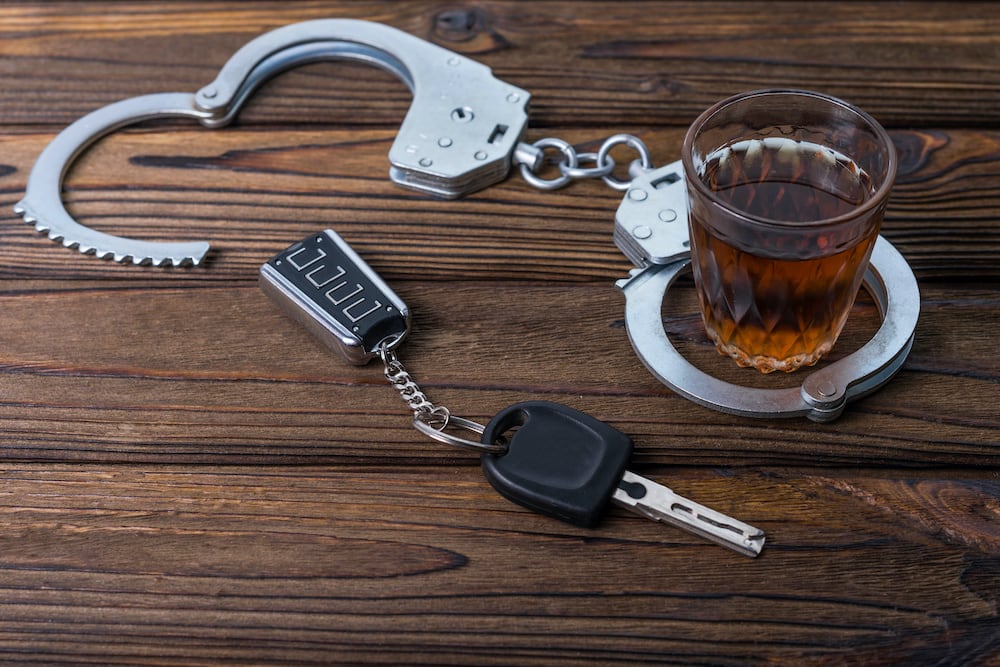In New York, the court may classify 13 to 15-year-olds as Juvenile Offenders for certain violent crimes. Adolescent Offenders include minors aged 16 to 17 years old with similar crimes under different legal rules. The Juvenile Offender label applies to serious crimes like Second-Degree Murder for 13-year-olds. It also applies to other violent felonies committed by 14- or 15-year-olds. The court processes Juvenile Offender cases in the Youth Part of Criminal Court, like adult cases. Family Court usually handles non-violent offenses involving minors with a focus on rehabilitation. A Nassau County juvenile crimes attorney can request that the court move the case to Family Court. Family Court usually provides more support and rehabilitative options for 13 to 15-year-old Juvenile Offenders.
For parents and guardians, understanding what being charged as a JO means is crucial to navigating these complex and intimidating circumstances.
Juvenile Offender Charges: A List of Serious Offenses in Long Island Courts
If your 13 to 15-year-old child faces any of the following charges in Long Island criminal court, they could be tried as a Juvenile Offender, resulting in serious consequences:
Aggravated Sexual Abuse in the 1st Degree (Penal Law 130.70)
- Eligible Age: 14-15
- Charge Level: Class B Violent Felony
Arson in the 1st Degree (Penal Law 150.20)
- Eligible Age: 14-15
- Charge Level: Class A-I Felony
Arson in the 2nd Degree (Penal Law 150.15)
- Eligible Age: 14-15
- Charge Level: Class B Violent Felony
Assault in the 1st Degree (Penal Law 120.10(1) or (2))
- Eligible Age: 14-15
- Charge Level: Class B Violent Felony
Burglary in the 1st Degree (Penal Law 140.30)
- Eligible Age: 14-15
- Charge Level: Class B Violent Felony
Burglary in the 2nd Degree (Penal Law 140.25(1))
- Eligible Age: 14-15
- Charge Level: Class C Violent Felony
Criminal Possession of a Weapon in the 2nd Degree (Only when gun is possessed on school grounds) (Penal Law 265.03)
- Eligible Age: 14-15
- Charge Level: Class C Violent Felony
Criminal Sex Act in the 1st Degree (Penal Law 130.50(1) or (2))
- Eligible Age: 14-15
- Charge Level: Class B Violent Felony
Kidnapping in the 1st Degree (Penal Law 135.25)
- Eligible Age: 14-15
- Charge Level: Class A-I Felony
Attempted Kidnapping in the 1st Degree (Penal Law 110/135.25)
- Eligible Age: 14-15
- Charge Level: Class B Violent Felony
Manslaughter in the 1st Degree (Penal Law 125.20)
- Eligible Age: 14-15
- Charge Level: Class B Violent Felony
Murder in the 2nd Degree (Penal Law 125.25(1) or (2))
- Eligible Age: 13-15
- Charge Level: Class A-I Felony
Murder in the 2nd Degree (Penal Law 125.25(3))
- Eligible Age: 14-15
- Charge Level: Class A-I Felony
Attempted Murder in the 2nd Degree (Penal Law 110/125.25)
- Eligible Age: 14-15
- Charge Level: Class B Violent Felony
Rape in the 1st Degree (Penal Law 130.35(1) or (2))
- Eligible Age: 14-15
- Charge Level: Class B Violent Felony
Robbery in the 1st Degree (Penal Law 160.15)
- Eligible Age: 14-15
- Charge Level: Class B Violent Felony
Robbery in the 2nd Degree (Penal Law 160.10(2))
- Eligible Age: 14-15
- Charge Level: Class C Violent Felony
Sexually Motivated Felony (Penal Law 130.91)
- Eligible Age: Varies depending on the underlying crime
- Charge Level: Varies depending on the underlying crime
These charges are just a portion of the “enumerated” offenses that may be brought against Juvenile Offenders. If your child’s charge isn’t on this list, it will likely be processed in Family Court, not Criminal Court.
Seeking Removal of Juvenile Offender Cases to Long Island Family Court
When a minor is charged as a Juvenile Offender, it is often in their best interest for the case to be transferred, or “removed,” to Family Court, which offers rehabilitative rather than punitive outcomes. To secure this transfer, the defense may file a motion or, in some cases, obtain consent from the District Attorney’s Office. The decision is based on several “Interest of Justice Factors,” which are thoroughly reviewed by the court, including:
- Seriousness of the offense and the specific circumstances of how it was committed
- Extent of harm caused to the victim or victims
- Available evidence, including whether it would be admissible at trial
- Personal history and character of the juvenile, including any prior delinquent behavior
- Purpose of sentencing and whether it would likely benefit the youth’s rehabilitation
- Community impact, or how removal might affect public safety and confidence in the justice system
- Victim’s perspective on having the case moved to Family Court
In cases of severe charges, like Second-Degree Murder, First-Degree Rape, or an armed felony, the court requires additional evidence of factors that mitigate the crime, reduce the juvenile’s role, or indicate weaknesses in proof. The court carefully considers these factors before deciding to transfer a case, aiming to balance justice with the potential for rehabilitation.
Juvenile Offender Sentencing Guidelines
While sentences for Juvenile Offenders are less severe than for adults, they still carry serious consequences. The bullets below outline potential sentences for Juvenile Offenders, depending on the level of offense:
B Violent Felony (14-15-year-olds)
- Minimum Sentence: 1 to 3 years
- Maximum Sentence: 3 ½ to 10 years
C Violent Felony (14-15-year-olds)
- Minimum Sentence: 1 to 3 years
- Maximum Sentence: 2 ⅓ to 7 years
D Violent Felony (14-15-year-olds)
- Minimum Sentence: 1 to 3 years
- Maximum Sentence: 1 ⅓ to 4 years
Murder in the 2nd Degree (14-15-year-olds, PL 125.25(1) or (2))
- Minimum Sentence: 7 ½ to Life
- Maximum Sentence: 15 to Life
Murder in the 2nd Degree (14-15-year-olds, PL 125.25(3))
- Minimum Sentence: 5 to Life
- Maximum Sentence: 9 to Life
Second Degree Murder (13-year-olds, PL 125.25(1) or (2))
- Minimum Sentence: 5 to Life
- Maximum Sentence: 9 to Life
Arson in the 1st Degree (14-15-year-olds)
- Minimum Sentence: 4 to 12 years
- Maximum Sentence: 6 to 15 years
Kidnapping in the 1st Degree (14-15-year-olds)
- Minimum Sentence: 4 to 12 years
- Maximum Sentence: 6 to 15 years
In cases of high-level offenses, Juvenile Offenders may still face life sentences. For families, understanding these guidelines is essential, as they can profoundly impact a young person’s future. An experienced attorney can navigate the sentencing process and may secure alternatives that better address the juvenile’s needs.
Rights of Juvenile Offenders Ages 13-15 During Arrest in Nassau or Suffolk County
Juvenile Offenders have specific legal rights upon arrest that differ from those of adults. These protections ensure fairness during police questioning and include:
- Simplified Miranda Rights: Juveniles must receive an age-appropriate version of their rights.
- Mandatory Video Recording: Police must record all questioning of Juvenile Offenders.
- Option for Guardian Presence: A parent or guardian can be present during the interrogation.
- Juvenile Holding Area: Juveniles must be kept in separate areas from adult offenders.
- Parental Notification: Police must notify a juvenile’s parent or guardian about the arrest and holding location.
If any of these rights are violated, a skilled criminal defense attorney may argue to suppress evidence, possibly leading to reduced or dismissed charges.
Effectively Representing Juvenile Offenders Ages 13-15 On Long Island
At The R.M.L. Law Firm, PLLC, we are committed to protecting the rights and futures of minors facing criminal charges in Nassau County and across Long Island. With substantial experience in both Criminal and Family Court, we approach each case with determination and a deep understanding of New York’s juvenile laws. Attorney Ramy M. Louis brings a wealth of experience as a former Nassau prosecutor, allowing him to anticipate prosecution strategies and build a solid defense aimed at securing the best possible outcome for young clients.
Our firm’s approach is both aggressive and compassionate, recognizing the unique challenges and high stakes of juvenile cases. We understand that each child’s situation is different, and we take the time to address the specific legal, emotional, and social concerns faced by young clients and their families. Whether it’s seeking removal to Family Court, challenging evidence, or negotiating alternatives to incarceration, our goal is to pursue justice while safeguarding your child’s future.
If your 13-15-year-old child has been arrested in Nassau County or Suffolk County, early intervention is crucial. Contact the experienced juvenile defense attorneys at The R.M.L. Law Firm, PLLC to schedule a free, confidential case evaluation. We’ll review your child’s case, discuss possible outcomes, and outline our approach to protecting your family’s rights and future.





